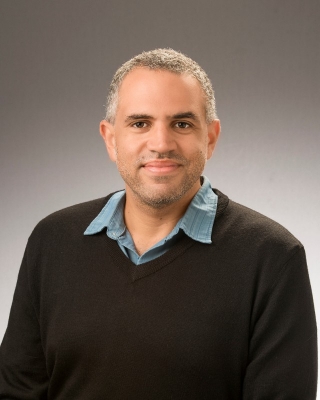Vincent Lloyd, PhD, Named 2024 Guggenheim Fellowship Recipient

VILLANOVA, Pa. (April 19, 2024) – Vincent Lloyd, PhD, a professor of Theology and Religious Studies and Director of the Center for Political Theology at Villanova University, has been named a 2024 Guggenheim Fellow. Chosen through a rigorous application and peer review process from a pool of almost 3,000 applicants, Dr. Lloyd is one of 188 fellows selected for this prestigious fellowship based on “career achievement and exceptional promise.” In all, 52 scholarly disciplines and artistic fields, 84 academic institutions, 38 US states and the District of Columbia, and four Canadian provinces are represented in the 2024 Guggenheim Fellow class.
Since its founding in 1925 by Senator Samuel Guggenheim, the Foundation has awarded over $400 million in fellowships to more than 19,000 fellows. Each fellow receives a monetary stipend to pursue independent work at the highest level under “the freest possible conditions.” Many Fellows’ projects directly respond to timely issues such as democracy and politics, identity, disability activism, machine learning, incarceration, climate change and community.
"Congratulations to Dr. Lloyd on this well-deserved recognition," said Adele Lindenmeyr, PhD, William and Julia Moulden Dean of the College of Liberal Arts and Sciences. "The Guggenheim Fellowship is among the most prestigious awards in academia, recognizing individuals whose work demonstrates exceptional depth, promise and impact. Dr. Lloyd’s selection reflects his distinguished scholarly reputation and the timeliness of his compelling new project on the controversial Black intellectual and radical, Harold Cruse."
Selected as a Guggenheim Fellow in discipline of Intellectual & Cultural History, Dr. Lloyd’s research and teaching focuses on issues and trends related to religion in politics and race, and their impact on social change. Most recently, he is the author of Black Dignity: The Struggle Against Domination (Yale University Press), co-author of Break Every Yoke: Religion, Justice, and the Abolition of Prisons (Oxford University Press), and co-editor of the forthcoming Political Theology Reimagined (Duke University Press). Dr. Lloyd has co-edited the journal Political Theology for the past 12 years, and he co-edits the Transforming Political Theologies book series. Dr. Lloyd previously held fellowships from the American Council of Learned Societies, the Louisville Institute, Durham University (UK), Emory University and Notre Dame.
During his Guggenheim Fellowship, Dr. Lloyd will be writing Harold Cruse: Contrarian Radical, a biography of one of the forgotten founders of Black studies, to be published by Yale University Press.
About the Guggenheim Foundation: Created and initially funded in 1925, by US Senator Simon and Olga Guggenheim in memory of their son John Simon, the John Simon Guggenheim Memorial Foundation has sought to “further the development of scholars and artists by assisting them to engage in research in any field of knowledge and creation in any of the arts, under the freest possible conditions.”
Since its establishment, the Foundation has granted over $400 million in Fellowships to more than 19,000 individuals, among whom are more than 125 Nobel laureates, members of all the national academies, winners of the Pulitzer Prize, Fields Medal, Turing Award, Bancroft Prize, National Book Award, and other internationally recognized honors. The broad range of fields of study is a unique characteristic of the Fellowship program.
The Foundation centers the talents and instincts of the Fellows, whose passions often have broad and immediate social impact. For example, in 1936, Zora Neale Hurston wrote Their Eyes Were Watching God with the support of a Guggenheim Fellowship and dedicated it to the Foundation’s first president, Henry Allen Moe. Photographer Robert Frank’s seminal book, The Americans, was the product of a cross-country tour supported by two Guggenheim Fellowships. The accomplishments of other early Fellows like e.e. cummings, Jennifer Doudna, Jacob Lawrence, Rachel Carson, James Baldwin, Martha Graham, and Linus Pauling also demonstrate the strength of the Foundation’s core values and the power and impact of its approach. More information at gf.org
About Villanova University: Since 1842, Villanova University’s Augustinian Catholic intellectual tradition has been the cornerstone of an academic community in which students learn to think critically, act compassionately and succeed while serving others. There are more than 10,000 undergraduate, graduate and law students in the University's six colleges—the College of Liberal Arts and Sciences, the Villanova School of Business, the College of Engineering, the M. Louise Fitzpatrick College of Nursing, the College of Professional Studies and the Villanova University Charles Widger School of Law. Ranked among the nation’s top universities, Villanova supports its students’ intellectual growth and prepares them to become ethical leaders who create positive change everywhere life takes them. For more, visit www.villanova.edu.
